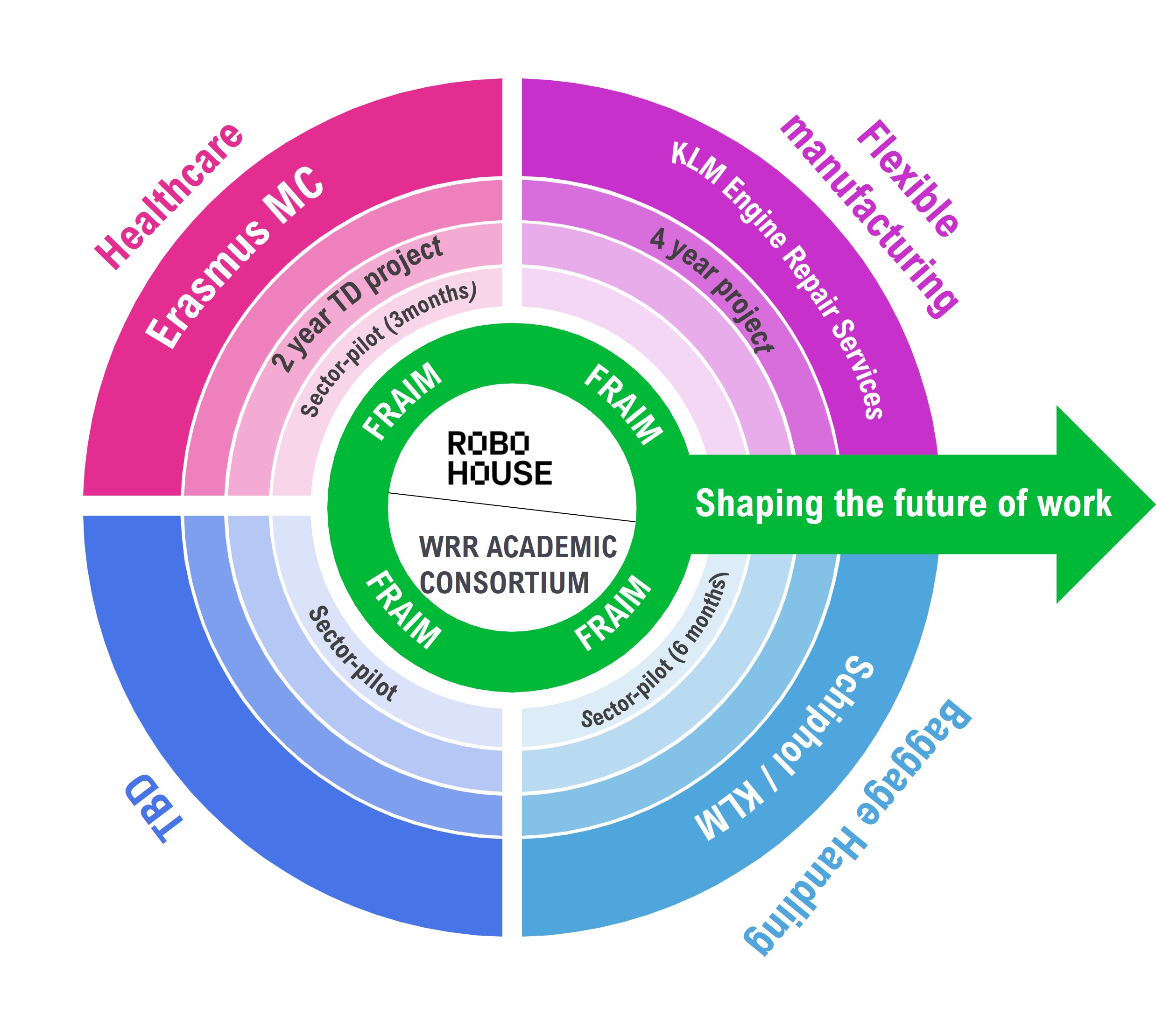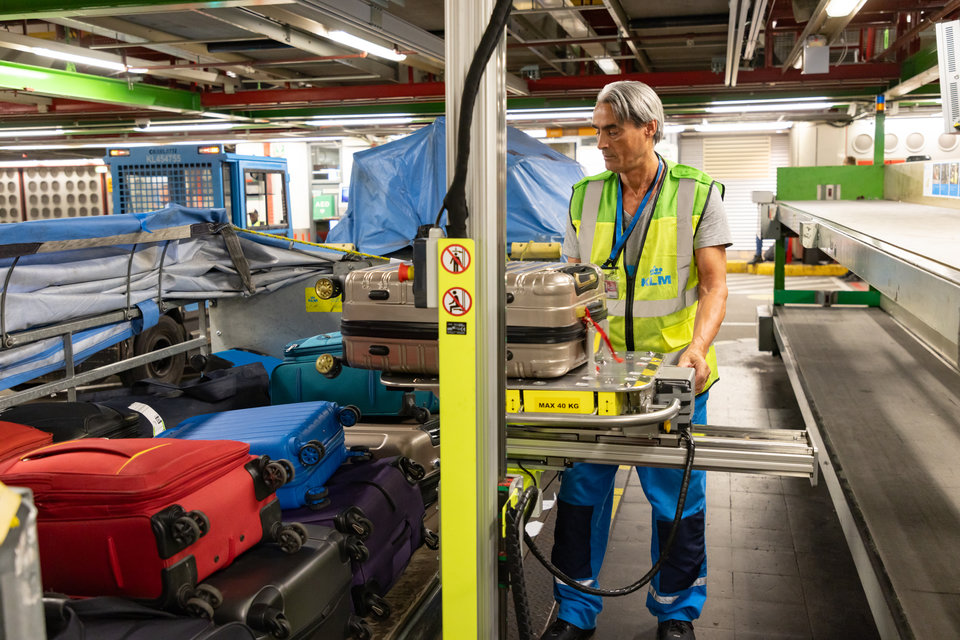Our vision
Shaping a meaningful, just and viable future of work is an ambition we take very seriously. More than a marketing slogan we want to enact system change in the field of physical work in this rapidly changing world we live, consume and work in. We believe that such systemic change is best achieved with and for workers. Put simply: we are not going to solve mounting labour shortages that threaten crucial sectors like care or the energy transition if we do not understand how to create attractive meaningful work - now and into the future.
Technology-driven innovations can lead to impressive ideas and prototypes. Operations optimalisations can lead to higher margins and profits. However, they tend to focus primarily on technical and economic viability in the short term. By the time innovations are implemented in the workplace, years have gone by and large investments are made. By the time effects on human and organisational aspects of work become apparent, it is often too late to change course.
This is also true for physical work processes and the role of upcoming cognitive robotics that can physically act around humans. We specifically focus on emerging worker-robot relations (WRRs) on the workfloor: complex dynamics of interdependent behaviours and mutual learning between workers and cognitive robots in real work contexts that are typically underexamined. We see these WRRs dynamics unfolding already, in different organisations and work contexts, driven mostly by what is economically viable. Steering such development towards meaningful and just work is difficult because of the currently fragmented approach to this socio-technical complexity, in which employees typically do not have much of a say. This fragmentation exists both in practice and in science. Therefore, we see shaping the future of work as a complex societal challenge, for which we need to involve all who have a stake, the skills and a responsibility.
But how do we build confidence in our ability to enact real change in such a complex problem landscape? Not knowable at the outset, we believe it requires a long-term perspective (at least 10 years), partners committed to this vision, and an appropriate methodology to learn how to enact change in this way.
We therefore engage with organisations and their workers, in shorter projects that always aim for the long-term partnerships needed to enact change. In that way we can jointly create an ‘engine of change’ of jointly explore, imagine, and experiencing future WRRs, co-developing them, and implement and monitoring intended and unintended consequences of interventions.
“Shaping the future of work requires us to bring the whole of ourselves, in order to connect with people and work across different perspectives, needs and values. That takes time, patience, reflection and dedication and a long-term perspective – but once you start, it soon starts giving the energy, trust, honesty and understanding that it’s worth spending that long time together.”

